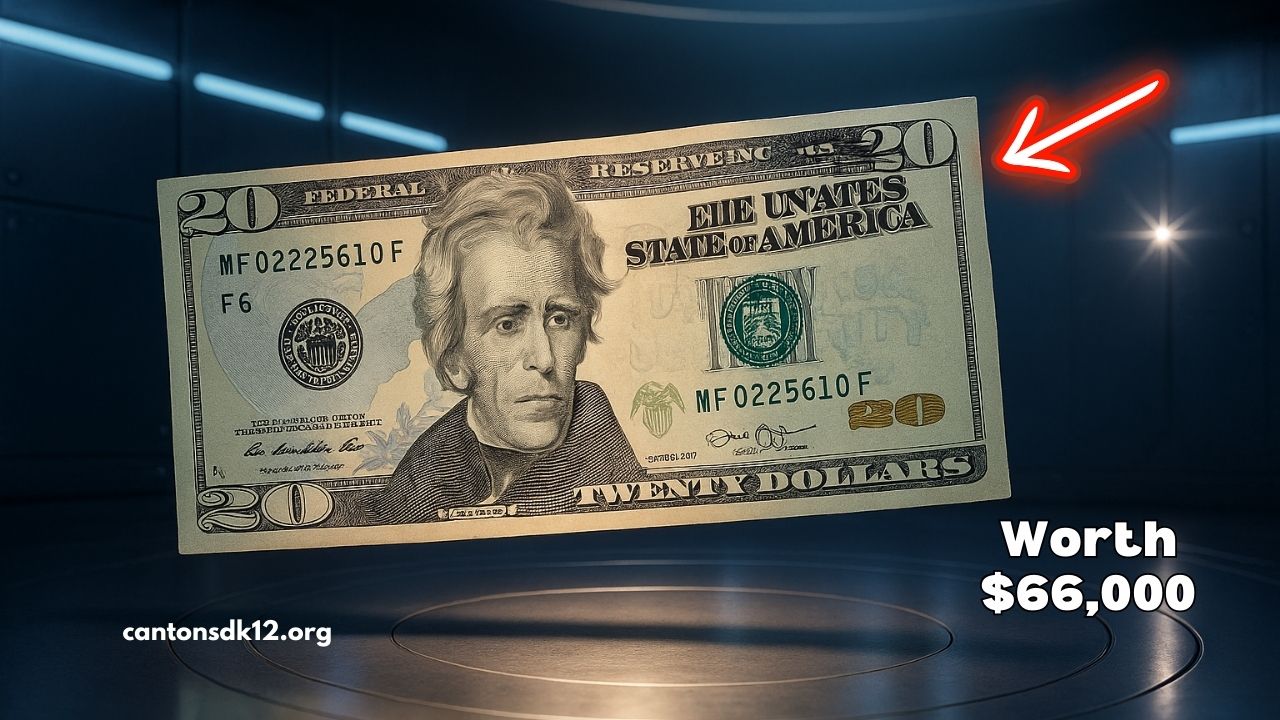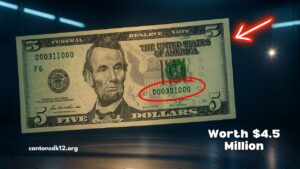Imagine discovering that a seemingly ordinary 2017 $20 bill in your pocket could net you $66,000—yes, with a check of your cash drawer, you might unknowingly be holding a priceless treasure.
Recently, one such error note fetched an astonishing sum at auction, igniting excitement among collectors and everyday folks alike. Here’s what to look for—and whether your bill might be worth much more than face value.
What Made That 2017 $20 Bill Sell for $66,000?
A single auctioned 2017 $20 note stood out due to a dramatic printing error. During the final stage of production, the serial number and Treasury seal were noticeably shifted, offset from their correct positions.
This glaring misalignment makes the error instantly visible and exceptionally rare—meaning collectors were willing to bid $66,000 for a single note.
Why Errors Like This Fetch Big Money
Modern U.S. currency undergoes rigorous quality control, making major misprints increasingly rare. When a note slips through with a highly visible printing flaw, it becomes highly collectible.
The unique nature of this 2017 printing error—coupled with its immaculate condition—pushed its value far beyond face.
Compare Common Error Bill Types and Values
| Error Type | Description | Value Range |
|---|---|---|
| Shifted Serial/Seal | Misaligned print elements like seal or serial | $10,000 – $66,000+ |
| Ink Contamination | Unusual ink color on serial number or note | $80 – $2,000+ |
| Obstructed Printing (Sticker) | Objects printed over by the press (e.g., Del Monte sticker) | $10,000 – $396,000+ |
| Minor Misalignment | Slight print shift without key detail offset | Nominal collector value |
Even smaller flaws can boost a note’s value—but only dramatic mistakes command top-dollar in auctions.
What to Look for When Checking Your Cash
If you want to hunt for treasure in your wallet:
- Inspect alignment of the serial number and Treasury seal on all $20 notes.
- Hold the bill up to light—errors may be even more noticeable then.
- Check for odd ink behavior, such as shifting colors or smudges.
- Compare suspicious notes to a standard bill for obvious differences.
This 2017 $20 bill reminds us that even recent currency can become rare collectibles. Despite decades of modernized printing, mistakes still slip through—offering a thrilling prospect that anyone, anywhere, might have the next big find.
Whether nestled among bills in a drawer or slipped between pages of an old book, that 2017 $20 could be worth far more than you think.
So next time you get change, pause and inspect closely—you might just uncover your hidden fortune.
FAQs
Is any printing error on a $20 bill worth $66,000?
No. Only highly visible errors—like the shifted third-stage print causing misalignment—reach that level. Minor printing flaws usually fetch far less.
How should I protect a potentially valuable error bill?
Avoid folding or cleaning it. Store it flat in a protective sleeve and have it evaluated by a professional collector or grading service to confirm its rarity.
Where can I sell a rare error note?
Specialized currency auction houses, certified numismatic dealers, or paper money grading companies are your best options for getting fair market value.


